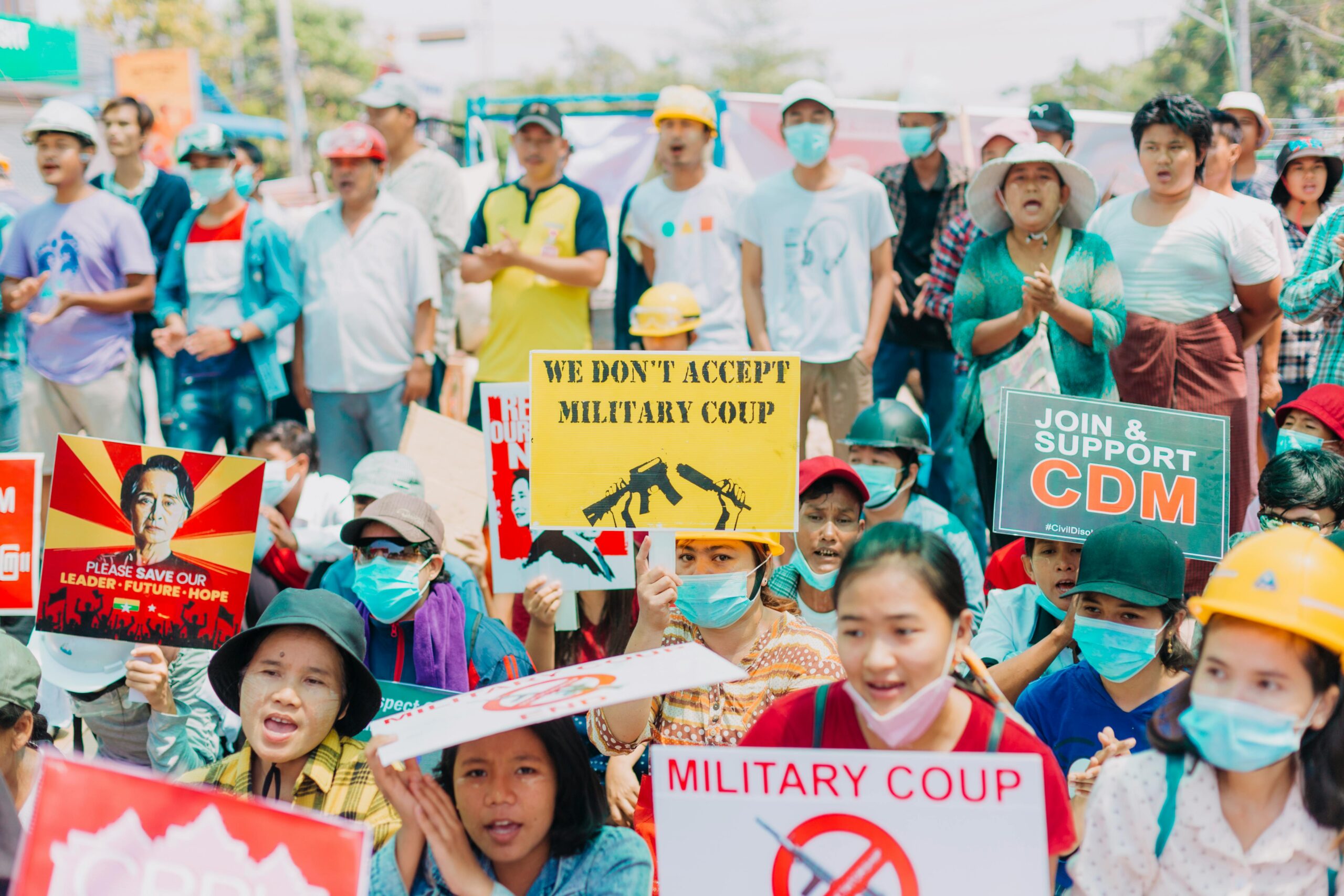Since Myanmar’s 2021 military coup, the space for independent journalism has shrunk dramatically. Yet, amidst the crackdown, arrests, and censorship, the Democratic Voice of Burma (DVB) continues to operate — albeit once again in exile. In a recent episode of the Straight Talk Southeast Asia podcast, host Bridget Welsh spoke with Aye Chan Naing, DVB’s chief editor, about what it means to report on Myanmar from the outside and the crucial role exiled media plays in keeping truth alive.
A History of Resilience
DVB was born in exile in 1992, beginning as a shortwave radio station in Oslo, Norway. Its mission: to counter the military’s one-sided propaganda and provide unbiased news to the Burmese people. For two decades, DVB broadcast from abroad before returning to Myanmar during a period of relative openness lasting about eight years. But after the 2021 coup, DVB — along with many independent outlets — was once again forced to flee. Now operating largely from outside the country, DVB is navigating an increasingly hostile and fragmented media landscape.
Despite being physically removed, DVB remains deeply rooted in Myanmar’s realities. “We focus on the country, in the country,” Aye Chan explains. Much of their work depends on underground reporters and citizen journalists — individuals risking their lives to document what’s happening on the ground. This hybrid model, combining editorial staff abroad with citizen journalism, enables DVB to sustain its reporting.
Journalism Under Threat
The danger for those reporting from inside Myanmar is ever-present. “After the coup, seven of our journalists were arrested and some of them were badly tortured,” Aye Chan revealed. One DVB journalist remains imprisoned. Over 200 journalists have been arrested since 2021, and at least 50 are still in jail. The regime’s message is clear: truth-telling will be punished.
Yet, DVB continues. The organization had a difficult decision to make after the coup: should they pause reporting to protect their staff or continue their work despite the risks? They chose the latter, believing it was their duty to expose the military’s brutality. “This is the time we have to play our role,” Aye Chan said.
The challenge is not just survival, but verification and financial sustainability. With limited access to official sources and no cooperation from the military, DVB relies on cross-referencing stories from multiple citizen journalists in the same location. “We never rely on just one source,” Aye Chan emphasized. This approach ensures not only accuracy but also credibility — a critical asset when working in exile.
Training and Trust
DVB invests time in training both its journalists and citizen reporters. Security is paramount. Journalists must remain anonymous. DVB teaches them not just how to gather news, but how to stay safe while doing so. “If you get arrested, your voice is silenced,” Aye Chan said. “We tell them: your security is the most important.”
That balance — between protecting reporters and continuing to report — is one DVB navigates daily. They know that their work brings hope to a population grappling with violence, displacement, and despair. “If you lose hope, you can’t survive any longer,” Aye Chan said. Through television, radio, and social media, DVB brings stories of resilience to millions of Burmese people.
A Military in Decline
Aye Chan believes that the military’s grip on power is weakening. “They’ve already lost 50% of the country — and even in the other half, they’re not really in control.” He describes the army not as a unified institution, but as one held together by fear. Soldiers are deserting, and forced conscription is becoming more common.
He sees this moment as a critical turning point. The military’s collapse is possible, even imminent — but international pressure is needed. Aye Chan called on Malaysia and other ASEAN countries to push for the implementation of the five-point consensus agreed upon in 2021, which included ending violence and releasing political prisoners. “None of those points have been implemented,” he noted. “We need to push further. This is the time when it’s really possible.”
The Role of Independent Media
As Myanmar faces one of the darkest periods in its history, Aye Chan insists that media must play a central role — not only in documenting atrocities but also in shaping the future. Freedom of speech, he says, is essential not just now but for any future democratic society.
In a landscape flooded with disinformation and propaganda, independent media like DVB must act as a compass for truth. “People don’t know who to believe anymore,” he said. “We have to be credible, ethical, and not controlled by anyone — not the military, not business interests, not foreign governments.”
Young people in particular are navigating an overwhelming digital space, often with no tools to discern fact from fiction. DVB aims to give them reliable information.
As Bridget Welsh closed the interview, she acknowledged DVB’s extraordinary contribution: “This is a very pivotal year for Burma,” she said. “And the role of media like DVB in helping people understand and believe in the possibility of change cannot be overstated.”
To that, Aye Chan added simply: “We’re here to give people hope.”
______________________________________________________________________________________________
This article was generated with AI based on a revised and edited version of the original transcription. All content has been checked and edited, where appropiately, by a journalist.

